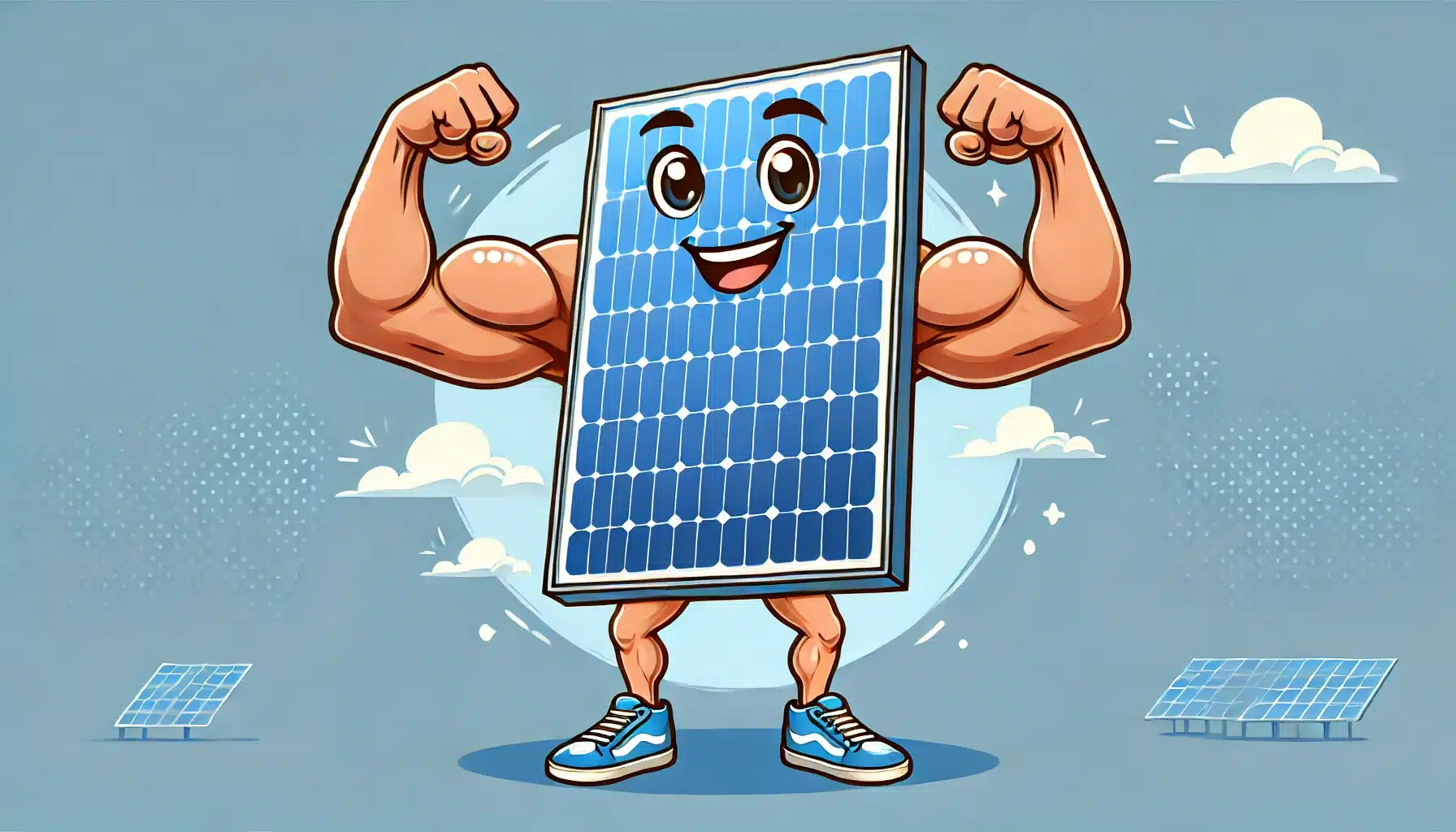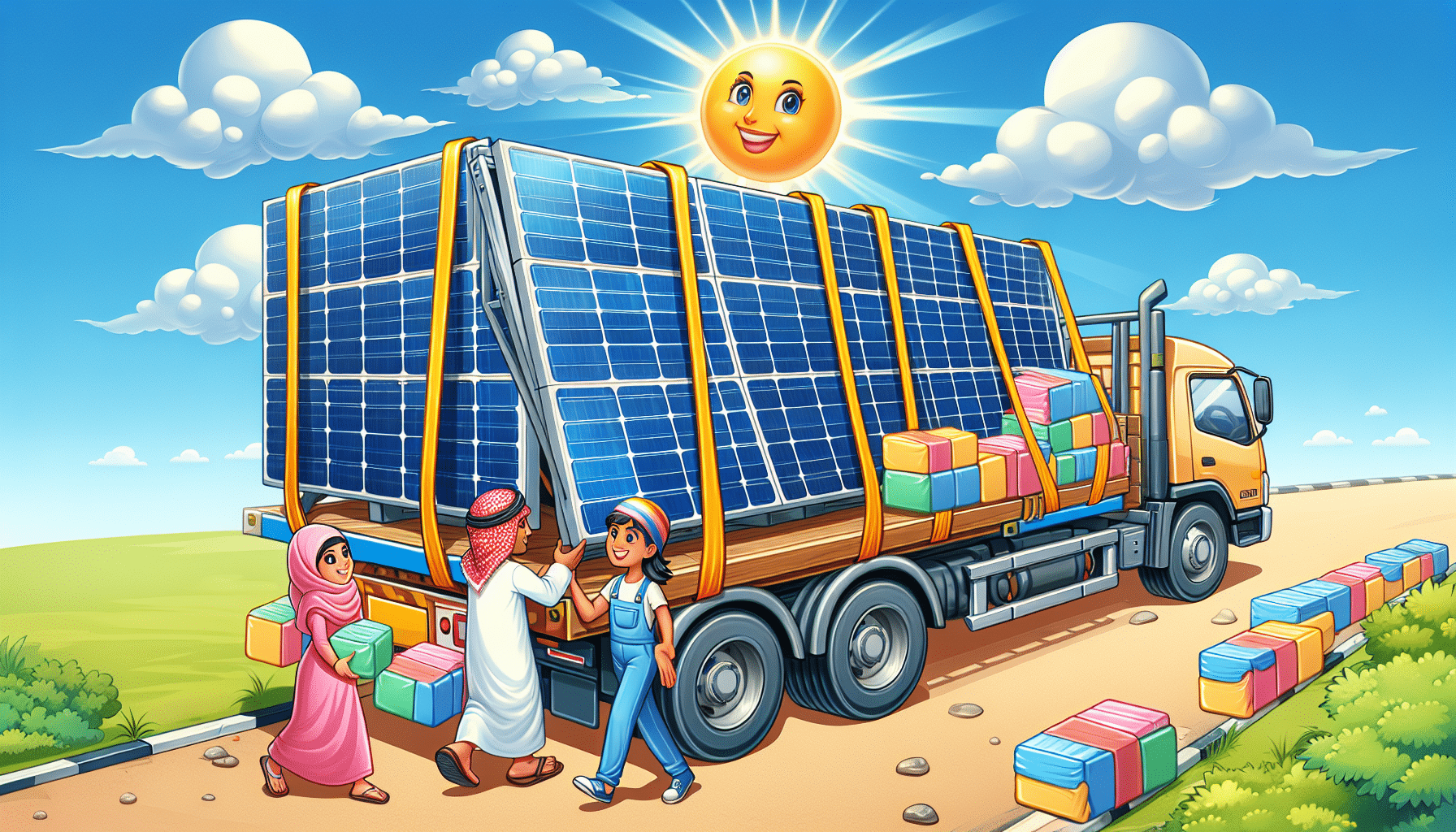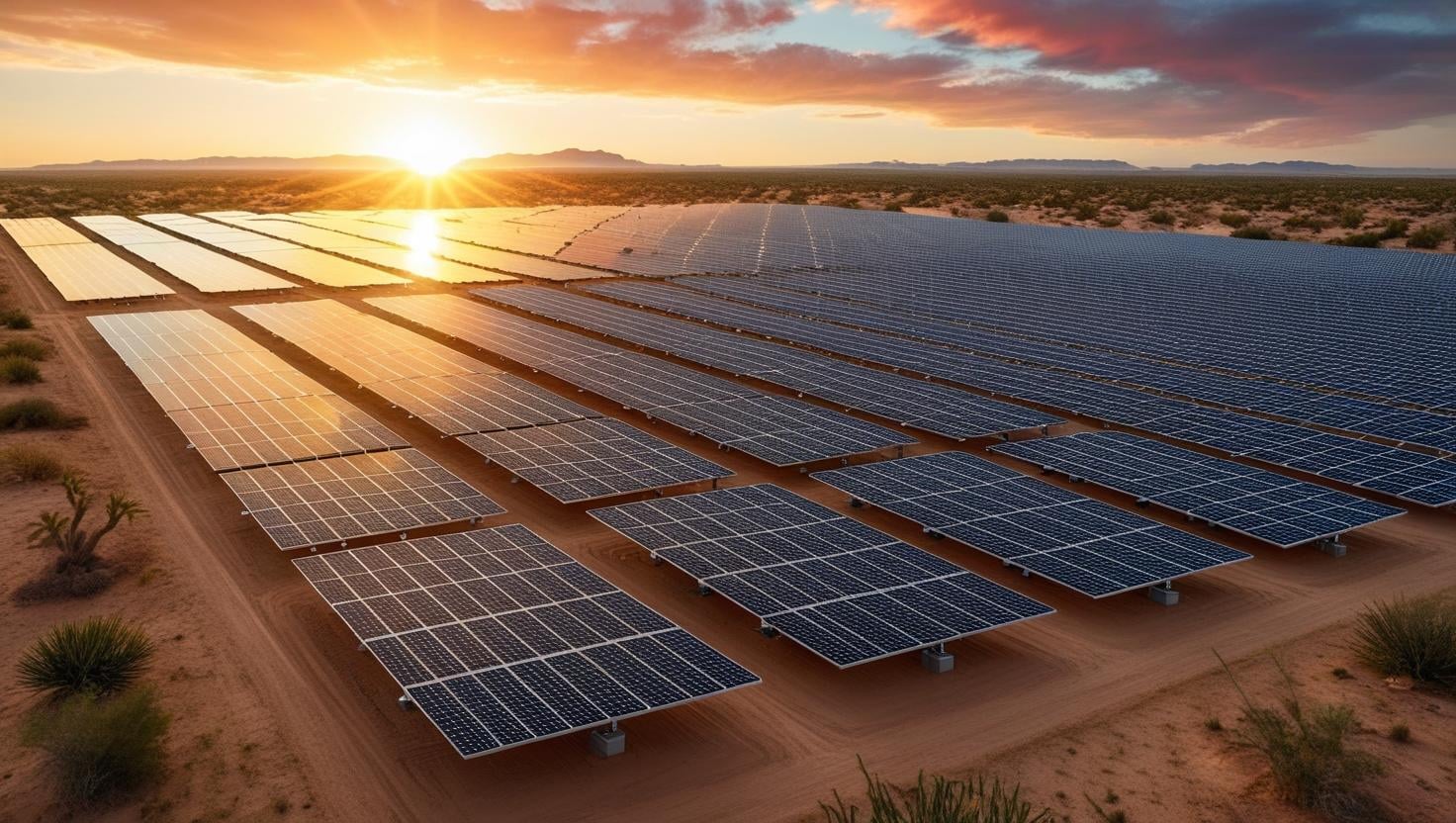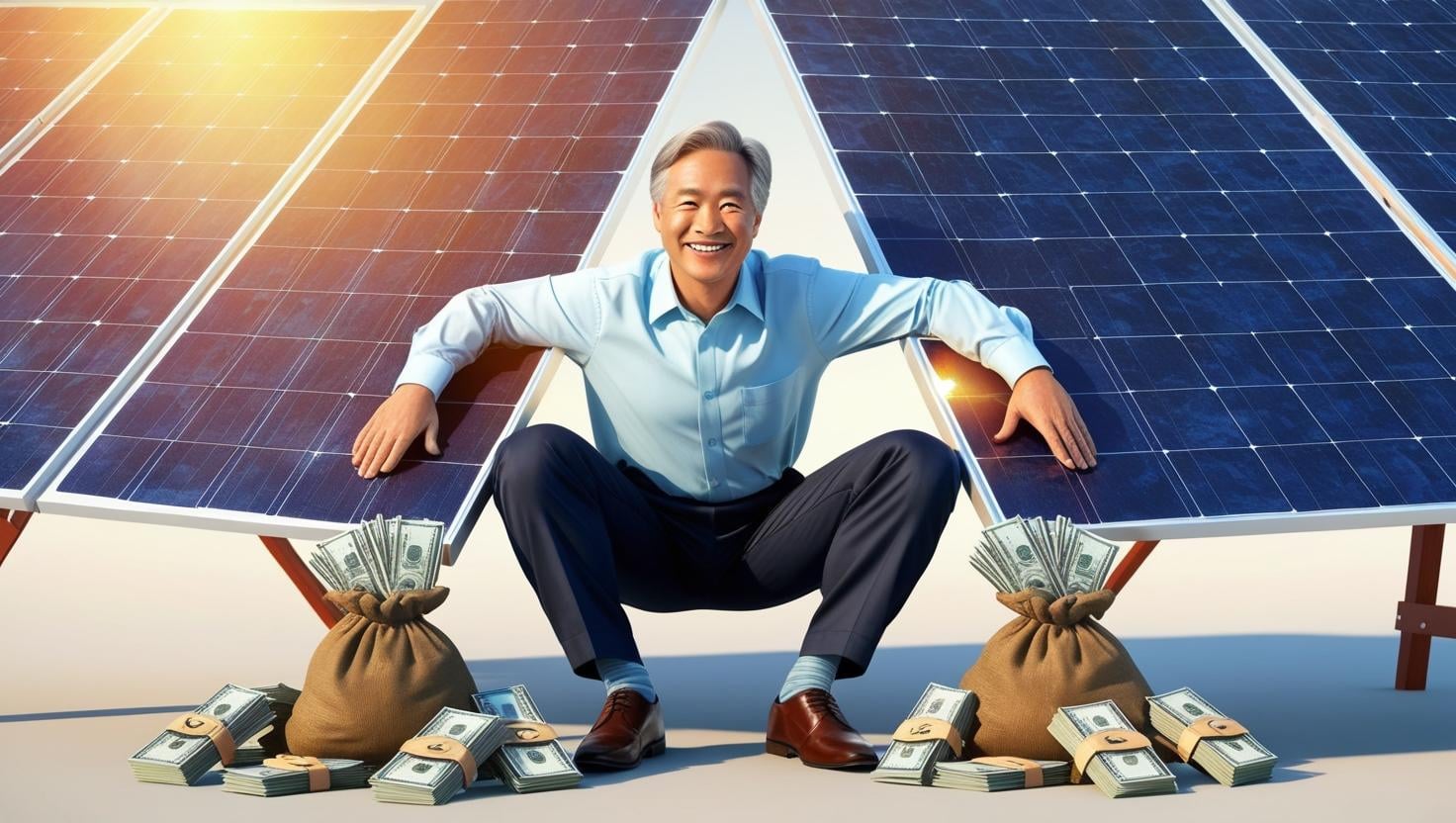Key Takeaways:
- Solar panels typically last 25 to 30 years, with high-quality materials and proper maintenance extending their lifespan.
- Regular maintenance, quality installation, and environmental factors play significant roles in solar panel durability.
- Protecting solar panels from extreme weather and ensuring high-quality materials and equipment are essential for long-term performance.
With the increasing shift toward sustainable energy solutions, solar panels have become a popular choice for homeowners and eco-conscious consumers alike. But how durable are these solar panels, and what should you know before making the investment?
This blog post aims to shed light on the durability and lifespan of solar panels, providing valuable insights into what impacts their performance and longevity.
Understanding the true durability of solar panels is essential for homeowners looking to make an informed decision. By the end of this guide, you’ll have a comprehensive understanding of the factors that influence solar panel lifespan, how to ensure they last longer, and why choosing high-quality materials and installation practices matters.
Table of Contents:
- Understanding Solar Panel Lifespan
- Factors Affecting Solar Panel Durability
- Solar Panel Degradation and Performance
- Solar Panel Materials and Construction
- Solar Panel Systems and Durability
- Extreme Weather and Solar Panel Durability
- Inspecting and Maintaining Solar Panels
- Solar Panel Warranties and Guarantees
- Choosing Reputable Solar Installers and Equipment
- Making Solar Panels Last Longer
- Solar Panel Recycling and End-of-Life
Understanding Solar Panel Lifespan
Solar panels are often viewed as long-term investments, but their exact lifespan can depend on a variety of factors. In this section, we’ll explore the typical lifespan of solar panels, what influences their longevity, and how manufacturers determine these estimates.
What is the average lifespan of most solar panels?
Most solar panels are designed to last between 25 to 30 years. Some high-quality panels can even extend their lifespan up to 50 years under ideal conditions. However, the 25 to 30-year mark is generally when it’s more practical to consider replacing them due to efficiency declines.
While solar panels can still generate electricity beyond this period, their reduced efficiency means they may no longer meet your energy needs. However, many homeowners find that their investment continues to pay off for decades with minimal maintenance.
How do solar panel manufacturers measure lifespan?
Manufacturers determine a solar panel’s lifespan based on its “useful life.” This represents the period during which it makes economic sense to keep using the system before potential replacement becomes more financially feasible. The useful life is closely linked to the panel’s degradation rate.
Degradation rate refers to the pace at which a solar panel’s efficiency and output decline over time. Typically, the lower the degradation rate, the longer the panel will effectively serve your energy needs.
Factors Affecting Solar Panel Durability
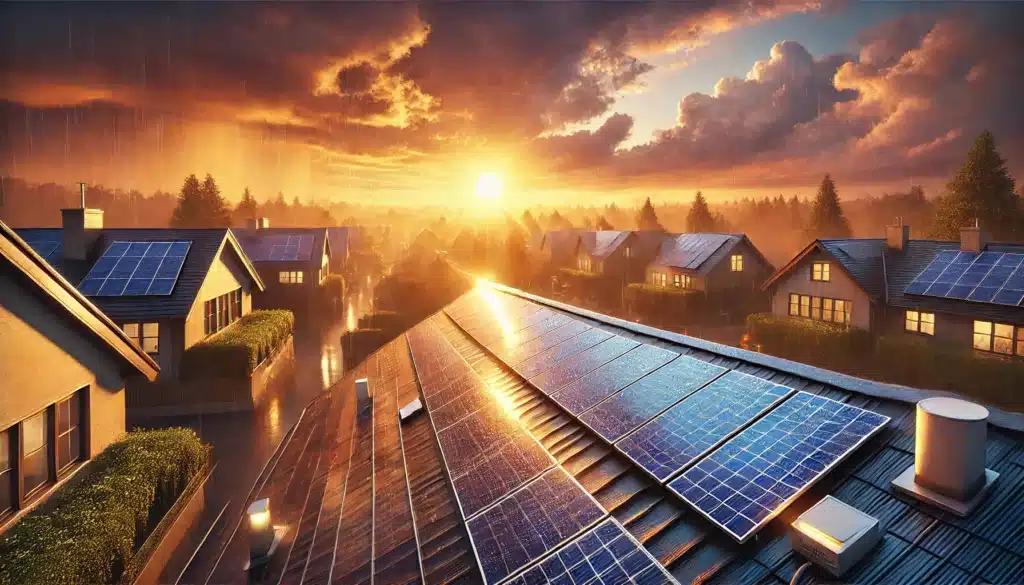
Several elements can either extend or shorten the lifespan of solar panels. From the quality of the panels themselves to how they’re installed and maintained, understanding these factors is key to ensuring your system lasts as long as possible.
Quality of solar panels and equipment
When it comes to solar panels, not all are created equal. Tier One manufacturers are known for their stability, experience, and reputable brand within the solar industry. Choosing panels from these manufacturers can assure quality and durability.
Monocrystalline solar panels, distinguished by their black appearance, are made from a single crystal structure, making them more durable than thin-film alternatives. High-quality panels not only perform better but also tend to have longer warranties, giving you confidence in their lasting power.
Installation and maintenance practices
The expertise of your installer plays a pivotal role in the durability of your solar panels. Proper installation ensures that all components work harmoniously and efficiently, reducing the risk of premature degradation. Regular maintenance and servicing are equally important to extend the lifespan of your investment.
An experienced installer will ensure that panels are installed in optimal locations and angles for maximum sunlight exposure. Poor installation can lead to inefficiencies and even structural issues down the line.
Climate and environmental conditions
Solar panels are exposed to environmental conditions that can affect their durability. Extreme temperatures, whether hot or cold, can create stress on the panels and their internal components, potentially accelerating degradation.
In regions with extreme weather conditions, it is important to select panels that have been tested and rated for harsh environments. Installing a robust racking system can also provide extra protection from wind and other weather-related challenges.
Solar Panel Degradation and Performance
Over time, solar panels gradually lose their efficiency due to a natural process known as degradation. Understanding how this process works and how to mitigate it can help you maintain optimal energy production for as long as possible.
How do solar panels degrade over time?
Like most technologies, solar panels experience a decline in performance over time. Exposure to sunlight, temperature fluctuations, humidity, and mechanical stress contribute to this natural degradation process. The quality of materials and manufacturing also plays a role.
Regular monitoring of your system’s output can help identify early signs of performance degradation, allowing for timely intervention before energy production drops significantly.
What are the effects of degradation on solar panel performance?
Degradation affects how much electricity a solar panel can generate, reducing its overall efficiency. This means your system might not produce as much energy as it did when first installed.
Even with a slight degradation in output, most solar panel systems continue to generate sufficient power for many years, making solar a worthwhile long-term investment.
Solar Panel Materials and Construction
The materials used in solar panels have a direct impact on their durability, performance, and overall lifespan. In this section, we’ll take a closer look at what goes into making a solar panel and how these materials contribute to long-term durability.
What materials are used to make solar panels?
The materials used in solar panels significantly influence their performance and durability. Crystalline silicon, available as monocrystalline and multi-crystalline, is a widely used material in solar photovoltaic technology.
Advances in materials science are constantly improving the efficiency and durability of solar panels. Researchers are exploring innovative materials and designs that promise longer-lasting and more efficient energy production.
Solar Panel Systems and Durability
A solar panel system is made up of various components that work together to generate and convert solar energy into usable electricity. The durability of these systems depends not just on the panels themselves, but also on inverters, mounting systems, and other elements.
How do solar panel systems impact durability?
The design and components of solar panel systems can impact overall durability. Inverters, which convert solar energy into usable electricity, and mounting systems play pivotal roles in maintaining system integrity.
System design should be tailored to your specific location and energy needs to ensure optimal performance over time. Working with an experienced solar provider can help ensure that all components are properly integrated and designed for longevity.
Extreme Weather and Solar Panel Durability
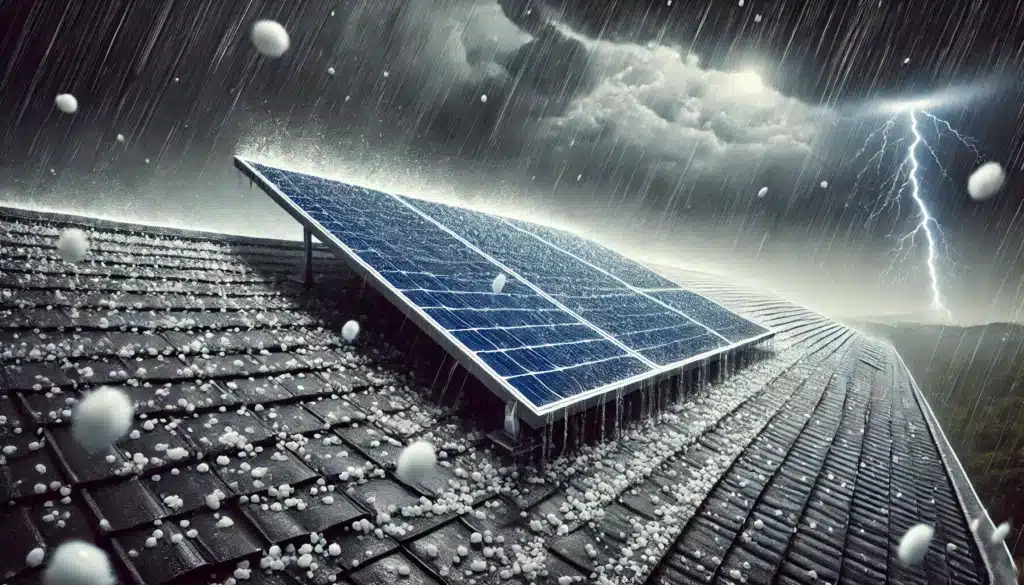
Extreme weather events are often a concern for homeowners considering solar. Fortunately, modern solar panels are designed to withstand a variety of environmental conditions. In this section, we’ll discuss how panels perform in tough weather and what can be done to protect them.
How do solar panels perform in extreme weather conditions?
Solar panels are engineered to endure a variety of weather conditions, from hailstorms to flooding. While they perform well in extreme weather, additional protection measures can enhance their resilience.
In areas prone to extreme weather, consider adding protective coverings or choosing panels that are designed for impact resistance. These steps will help safeguard your investment in the long run.
Inspecting and Maintaining Solar Panels
Routine inspections and regular maintenance are key to keeping your solar panels in top condition. These practices not only prolong the life of your panels but also ensure they continue to operate at peak efficiency.
Why is regular maintenance important for solar panel durability?
Regular maintenance is crucial for extending the lifespan of solar panels. By addressing issues early, you can prevent significant damage and optimize system performance.
A well-maintained solar panel system can continue to provide efficient, reliable energy for years, ensuring that your investment pays off well into the future.
How to inspect solar panels after a weather event
After a significant weather event, it’s important to ensure that your solar panels are still functioning properly. Safety should always be your first priority when performing an inspection. While solar panels are designed to withstand a variety of weather conditions, it’s critical to check for any signs of damage.
After a storm, begin by visually examining the PV modules for any noticeable issues such as cracks, dents, or other visible damage. Ensure all wiring connections and the grounding system remain secure and undamaged. Additionally, check the mounting system to confirm that panels haven’t shifted or become misaligned during high winds or heavy precipitation.
Tips for cleaning and upkeep of solar panels
Regular cleaning is essential for keeping your solar panels in top working condition. Dust, dirt, and debris can accumulate on the surface of the panels, reducing the amount of sunlight they receive and lowering energy production. A simple routine of cleaning your panels a few times a year can help them function at their highest efficiency.
To clean your panels, use non-abrasive materials and avoid harsh chemicals. Rain often assists in cleaning, but in drier climates or areas with heavy pollen or dust, more frequent cleaning may be necessary. By following these upkeep tips, you’ll ensure that your solar panels operate efficiently and continue generating maximum energy for years to come.
Solar Panel Warranties and Guarantees
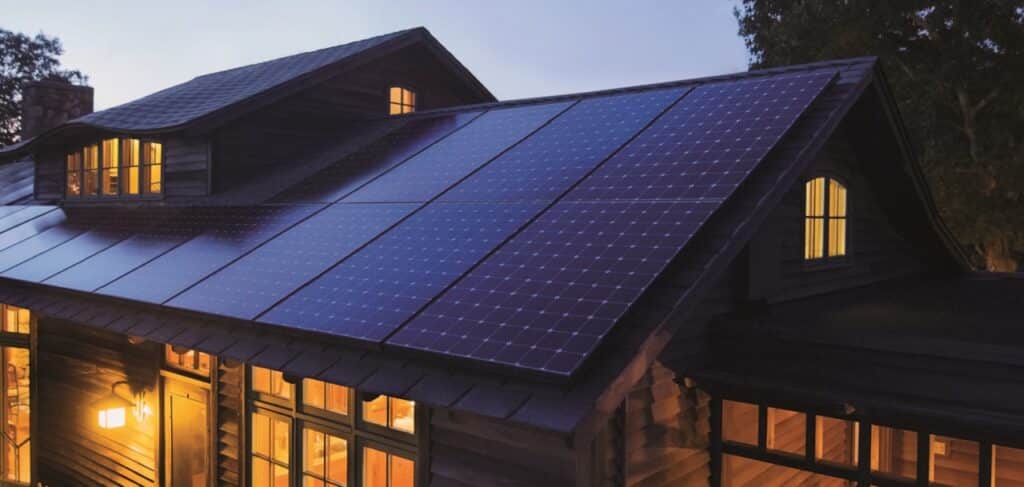
Warranties offer valuable protection and peace of mind when investing in solar technology. In this section, we’ll explore the typical warranties offered by solar panel manufacturers and what homeowners should know about coverage.
What are standard warranties and guarantees for solar panels?
Solar panel warranties typically consist of two parts: a performance warranty and a product (or workmanship) warranty. The performance warranty guarantees that your panels will produce a certain percentage of their original output after a specific number of years, usually 80-90% after 25 years. The product warranty covers manufacturing defects and other issues related to panel durability, usually lasting between 10 to 25 years.
Before purchasing a system, review the warranty details carefully. Some manufacturers offer extended coverage for premium panels, which may be a good option for those wanting extra protection.
Do solar panel warranties cover extreme weather damage?
Most solar panel warranties do not include coverage for damage caused by extreme weather conditions such as hailstorms or hurricanes. However, many homeowners opt to add insurance policies specifically to cover weather-related events. Understanding the limitations of your solar warranty and obtaining the right level of coverage is essential to protecting your investment from unforeseen risks.
Choosing Reputable Solar Installers and Equipment
The quality of your solar system depends heavily on the installer you choose and the equipment they use. In this section, we’ll cover how to find a trusted installer and what to look for when selecting solar equipment.
How to choose a reputable solar installer (like Sun Source Energy!)
A reputable installer can make all the difference in the longevity and efficiency of your solar system. Look for companies with relevant certifications, such as those from the North American Board of Certified Energy Practitioners (NABCEP). It’s also wise to check customer reviews and ask for referrals from friends or neighbors who have gone solar.
Good communication, transparency, and detailed proposals are all signs of a trustworthy installer. Always verify licenses and ask questions about their experience and workmanship guarantees before committing to a project.
What to look for in high-quality solar equipment
Not all solar panels and components are created equal. When choosing equipment, look for established brands with a proven track record of durability and performance. Products that have passed rigorous testing, such as Tier 1 panels or inverters from well-known manufacturers, are ideal.
Check for equipment warranties and certification standards like IEC or UL ratings. These indicators ensure that the products have been tested for safety, reliability, and efficiency.
Making Solar Panels Last Longer
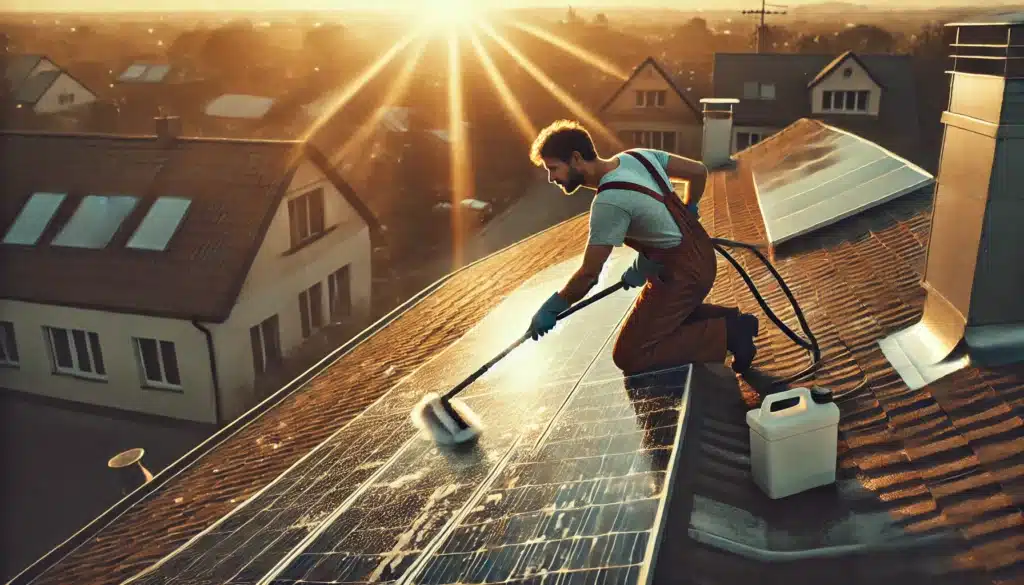
Proper care and maintenance go a long way in extending the life of your solar panels. In this section, we’ll discuss simple tips to ensure your solar panels remain productive well into the future.
Tips for extending the life of your solar panels
To maximize the lifespan of your solar panels, focus on regular maintenance. Clean the panels periodically to remove any debris that could block sunlight and reduce energy production. Additionally, ensure that all electrical components are functioning properly, and schedule routine inspections to catch potential issues before they escalate.
Investing in high-quality panels and having them installed by a reputable professional can also significantly extend their life. Small steps like these can keep your solar system working efficiently for decades.
The role of regular maintenance and servicing
Regular servicing by a qualified technician ensures that your solar panels continue to generate clean energy efficiently. Technicians can spot potential issues such as wiring degradation or mounting misalignments before they affect performance. Routine checks are also important after extreme weather to ensure your system remains in top condition.
By staying on top of maintenance, you can maximize energy production, increase cost savings, and extend the overall life of your solar system.
Solar Panel Recycling and End-of-Life
When your solar panels reach the end of their useful life, responsible disposal and recycling are crucial. In this section, we’ll look at the environmental impact of solar panel recycling and how the process contributes to sustainability.
What happens to solar panels at the end of their life?
Solar panels are made from valuable materials that can be recycled, such as silicon, glass, and metal. When a solar panel reaches the end of its operational life, specialized recycling centers can extract these materials for reuse, minimizing waste and reducing the environmental footprint.
Recycling old solar panels ensures that valuable components are repurposed for future use in new technologies, contributing to a circular economy and reinforcing the benefits of sustainable energy.
Conclusion
Understanding the durability and lifespan of solar panels is vital for homeowners and eco-conscious consumers seeking to make informed decisions. By exploring the various factors that influence solar panel performance and longevity, you can ensure a successful and sustainable solar energy investment.
For those seeking durable and reliable solar solutions, Sun Source Energy offers the highest quality, American-made PV solar panels.
With a commitment to excellence, Sun Source Energy provides peace of mind for homeowners and businesses alike. Invest in solar panels today and enjoy the benefits of clean, renewable energy for years to come.
Ready to make the switch to solar and enjoy long-lasting energy savings?
Contact Sun Source Energy today to discover how our high-quality solar systems can power your home for decades. Let us guide you toward a sustainable future with reliable, American-made solar panels that stand the test of time


